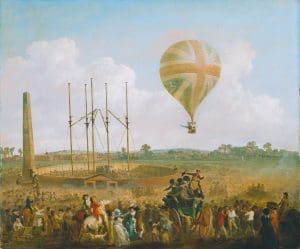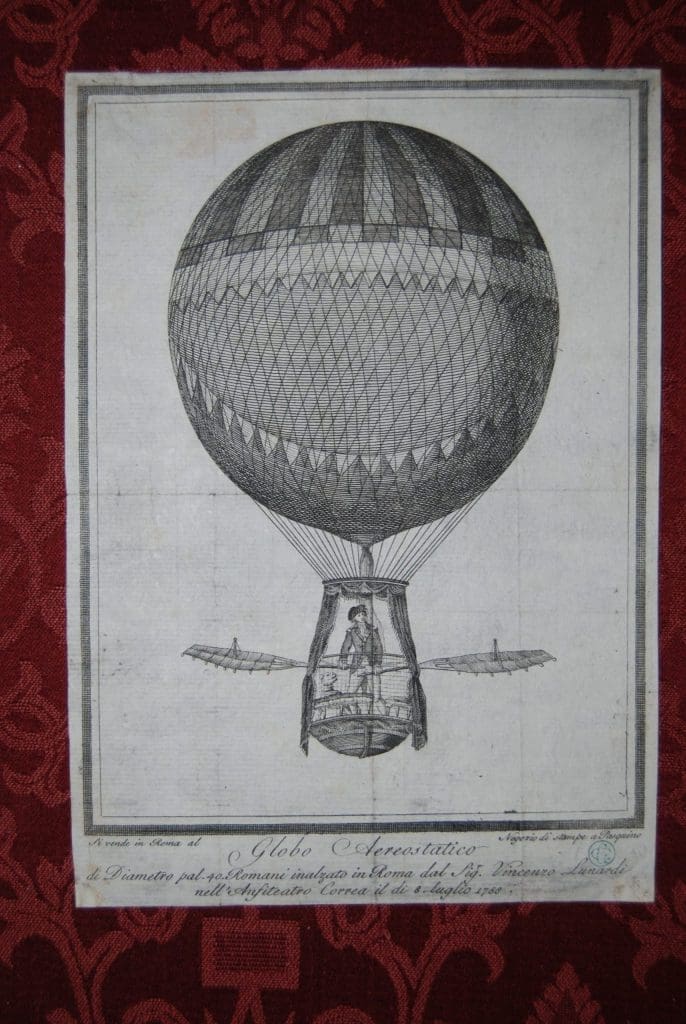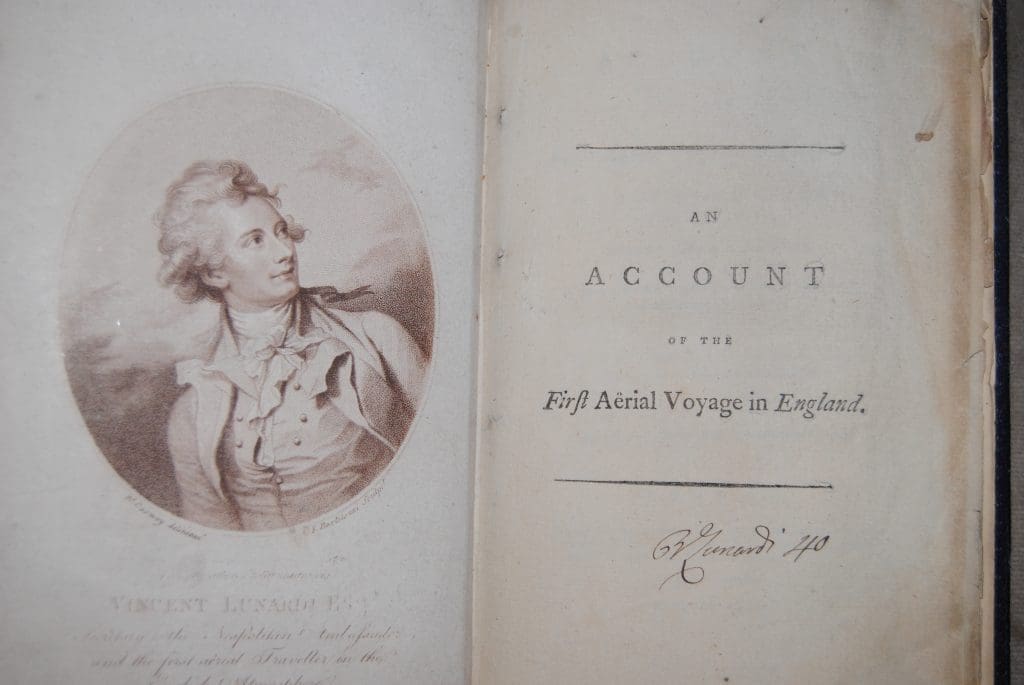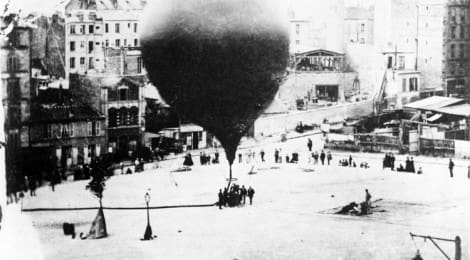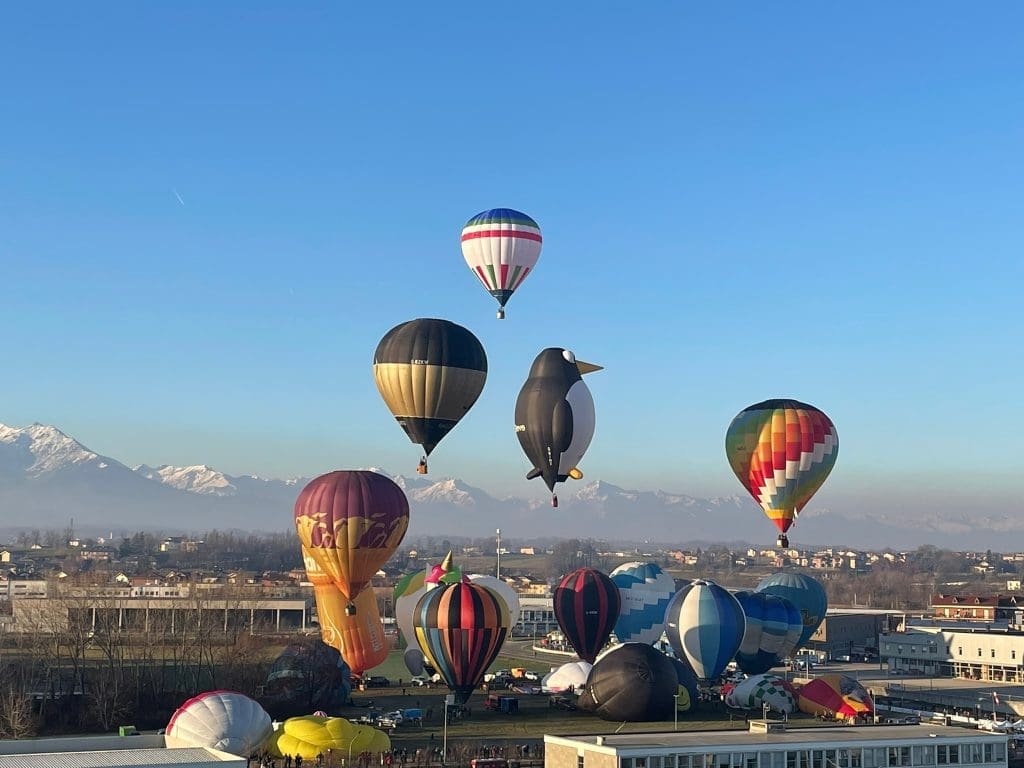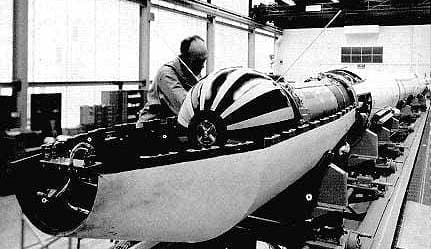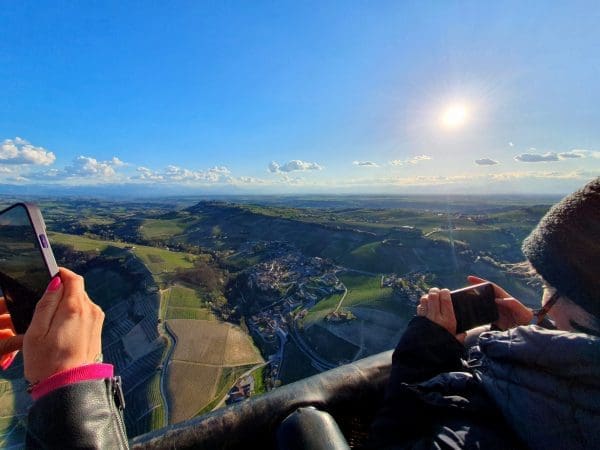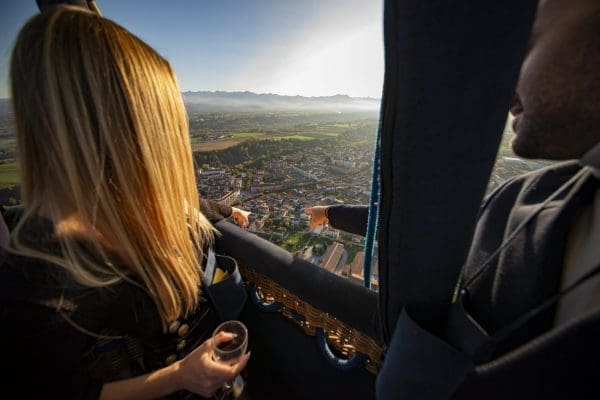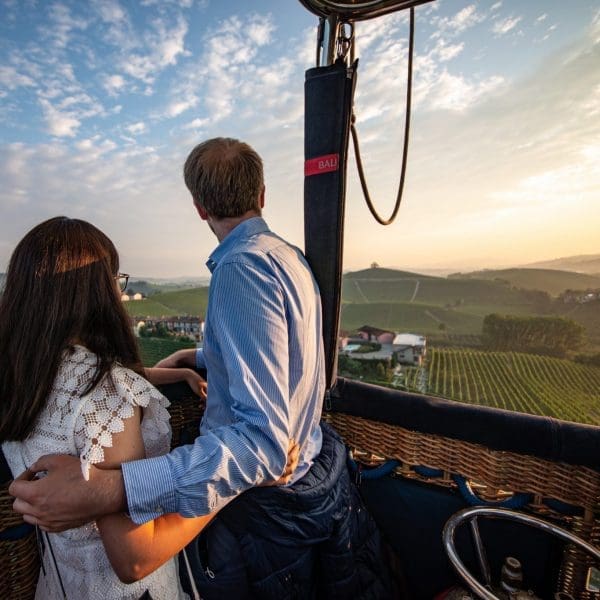"Nemo propheta in patria": this is one of the most famous Latin mottos. A saying that fits perfectly to the events that marked the existence of Vincenzo Lunardi, a character of great fame, highly appreciated in half of Europe and reproached at the limit of ridicule in Italy and his hometown, Lucca! The famous aeronauta lived at the turn of two centuries, in the years of the French Revolution, and reached extraordinary heights of popularity in England, Spain and Portugal, exploring in a balloon ''the unbroken empire of lightning", as some at the time defined the almost unknown realm of atmosphere. The story of his life is a compelling and exciting succession of events, times of triumph and success, times of great disappointment and failure, In any case, never banal. Like reaching the seven thousand meters above sea level, "where no more birds fly". But we proceed with order...
The famous aeronauta lived at the turn of two centuries, in the years of the French Revolution, and reached extraordinary heights of popularity in England, Spain and Portugal, exploring in a balloon ''the unbroken empire of lightning", as some at the time defined the almost unknown realm of the atmosphere
Lunardi was born in Lucca on 11 January 1754 (and not 1759, as all the previous biographies state) to Giuseppe Lunardi from Lucca and Caterina Pardocchi, originally from Castiglione Garfagnana. His birthplace is still in existence and is located in via Rosi (once Via dei Borghi), corner of via dei Fossi. His childhood was not easy. Father killed himself following financial setbacks when Vincenzo was only nine years old. The mother found herself with six children, unable to raise them, so much so that she entrusted the future aviator to her noble cousin Gherardo Compagni, who took charge of the education and maintenance of the child until adulthood, taking him with him in the east, in India and perhaps also in Indonesia, and then at the court of Naples, leading him to a brilliant military career. Vincenzo, endowed with great skills and intelligence, already very young became an officer of the Bourbon Kingdom and secretary to Prince Aquino Caramanico, who held high diplomatic positions for the Kingdom of Naples at the court of the King of France and later, from 1782, in London at the court of George III. Thanks to the period spent with the Caramanico, Lunardi had the opportunity to attend the elite environments of the time.
It was in London, at that time a true world capital, a city where innovative ideas were always rewarded, that Lunardi, on the wave of the echo of the enterprises that the first aeronautics had accomplished in Paris, For the first time in the world by overcoming gravity and flying a hot air balloon on November 21, 1783, he gave life to his imaginative project of becoming the first man to fly in a balloon over English soil, in fact giving up a brilliant diplomatic career to pursue an unlikely dream.
Having overcome endless bureaucratic and economic difficulties, il 15 settembre 1784, Vincenzo Lunardi riuscì a coronare la sua “lucida follia” decollando a Londra dinanzi ad una folla immensa ed osannante on board a balloon designed and manufactured by him. His popularity became immense, to the point that his effigy was depicted on paintings, prints, medals, dishes and everyday objects, people recognized him in the street and greeted him with great admiration.
Lunardi did not stop after the first triumph, but he made numerous flights in England and Scotland, 13 or maybe 14, setting several records for the time, flying over the sea, sailing at winds of almost 100 km/h and more than 200 km and reaching very high altitudes. In 1788 he returned to Italy. In the christmas Lucca was first welcomed triumphantly, but then, after a failed exhibition attempt scheduled for June 17, 1788, was accused by his own countrymen of being a con, dovette di fatto fuggire Not to be imprisoned or, worse, lynched. He then went to Rome, where he collected a second, burning failure, which earned him further accusations and dileggi and returned to Naples, at the court of Ferdinand IV of Bourbon, that he had great sympathy and consideration for him since the time when he became one of his youngest artillery officers.
Finally in Naples he managed to make a magnificent flight, which saw him however fall back into the sea, where he was saved by some fishermen. Ferdinand IV sent him to Palermo to make new flights (one failed and one successful) and, after a second flight to Naples, on the occasion of which he exceeded 7,000 meters altitude, in 1792 he was obliged to go to the Spanish court, with which he was closely related (Charles III of Spain was his father). In fact it was an exile, because the aeronauta will never return to Italy
In Madrid Lunardi made some flights with great success in 1792 and 1793, then he moved to Lisbon, making another magnificent flight in 1794, and then returning to Spain, where he flew for the last time to Barcelona on 5 November 1802. Back in Portugal, Vincenzo Lunardi died at the age of 52 in Lisbon, where he is still buried, at the convent of the Capuchin friars, on 31 July 1806, due to an acute illness, perhaps a pneumonia.
The figure of Vincenzo Lunardi has obtained the right recognition also in the Lucca christmas only recently, starting in 2011, following the publication of the essay "Vincenzo Lunardi Aeronauta, l'avventurosa esistenza di un eroe del Settecento", published by Editore LoGisma. The writing of the biography is due to the writer and two of his collaborators, local history scholars Angelo Frati and Rita Mandoli Dallan, who were able to discover the family origins of aeronautics, a business in which they had previously based themselves, without succeeding, illustrious biographers and historians and scholars of aeronautics, such as Cross, Sardi, Boffito, Lazzareschi and Gardiner.
The discovery of the genealogy of Lunardi and his birthplace has led to the affixing of a plaque and a series of events both in Lucca (exhibition at villa Bottini, conferences, drawing of a medal by the ancient Mint of Lucca) and both in Castiglione Garfagnana (Naming of a square and apposition of commemorative plaque). More recently, in September 2016, Lucca hosted an international conference attended by scholars from Portugal, who are preparing an essay on Lunardi’s stay in Lisbon and his relations with the local poet and patriot Manoel Barbosa du Bocage. For about fifteen years in Lucca operates the Vincenzo Lunardi Balloon Club, which organizes events with hot air balloons and since the early years of the new century has collaborated in the realization of the aerostatic rally of Capannori, under the leadership of Massimo Raffanti, Volcanic and enthusiastic local journalist.
All these initiatives are aimed at giving the right place to one of the most interesting and less celebrated figures of the European Enlightenment, a man who was fearless, daring, innovative and endowed with that "germ of healthy madness" Which distinguishes the men who have determined the history of science. Lunardi was not only an aeronauta, he was a writer, inventor, military strategist, fine communicator (he spoke five languages and after each enterprise called what we can consider as pre-Literam "press conferences"). He invented, among other things, the backloaded guns adopted by the powerful Portuguese navy. He was also a very charming character, adored by ladies who wore clothes, hats and jewelry inspired by the "au ballon" fashion, which raged for many years from 1784 in France and England.
Soon, from 1 September to 8 October 2023, at the Antica Zecca in Lucca, on the occasion of the centenary of the Italian Aeronautica, an exhibition dedicated to the aeronautics and airmen of Lucca will be set up. Lunardi will have a place of honor in the exhibition, which will also present some rare memorabilia related to his adventurous existence.

Would you like to fly in a hot air balloon?
(Modern of course)

